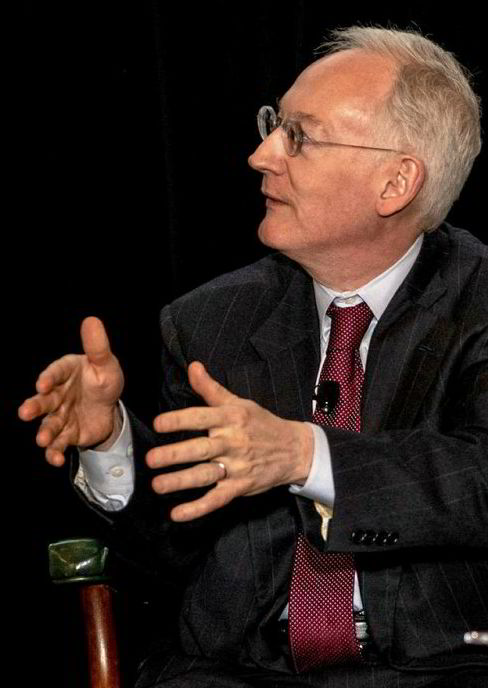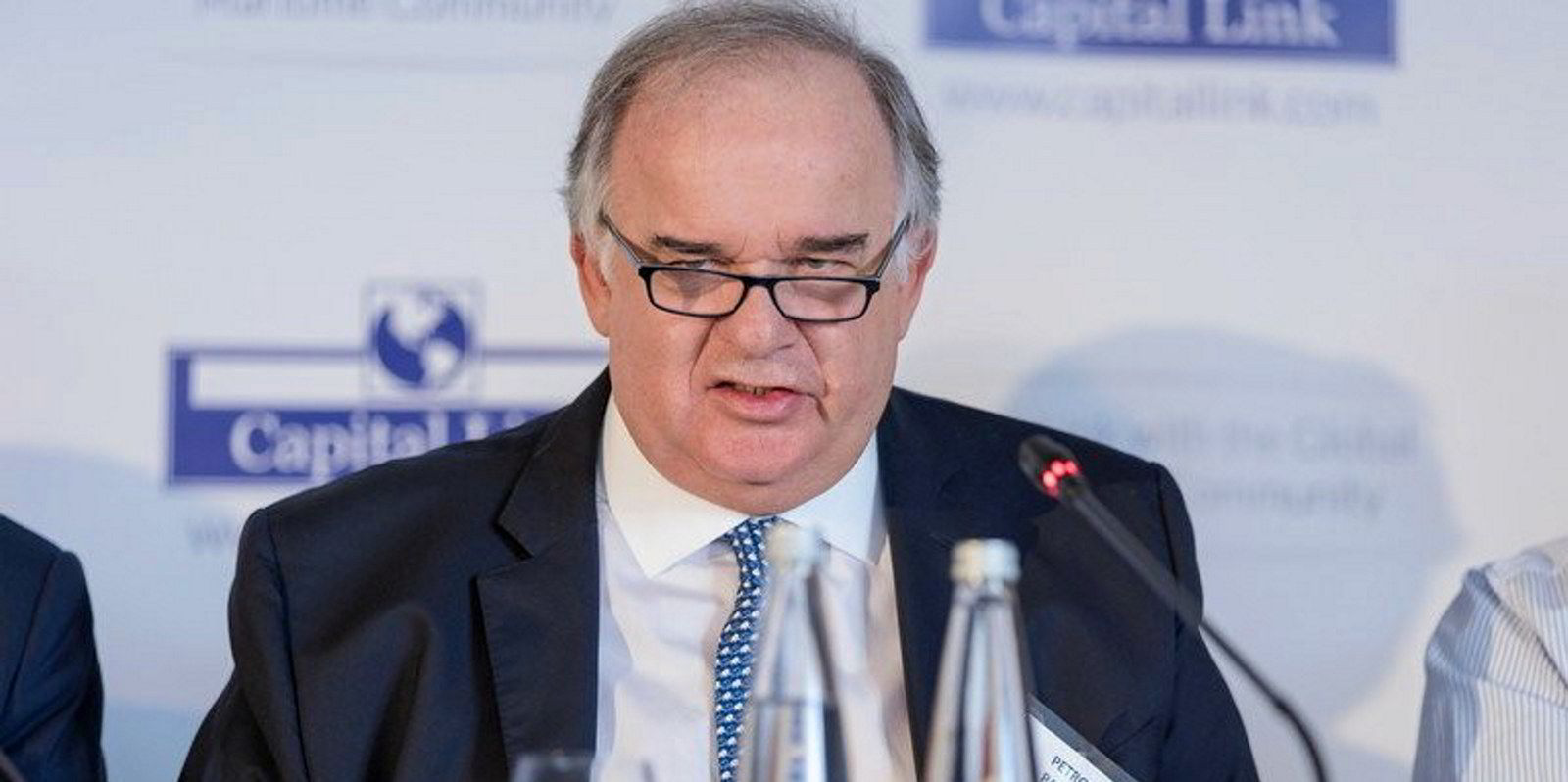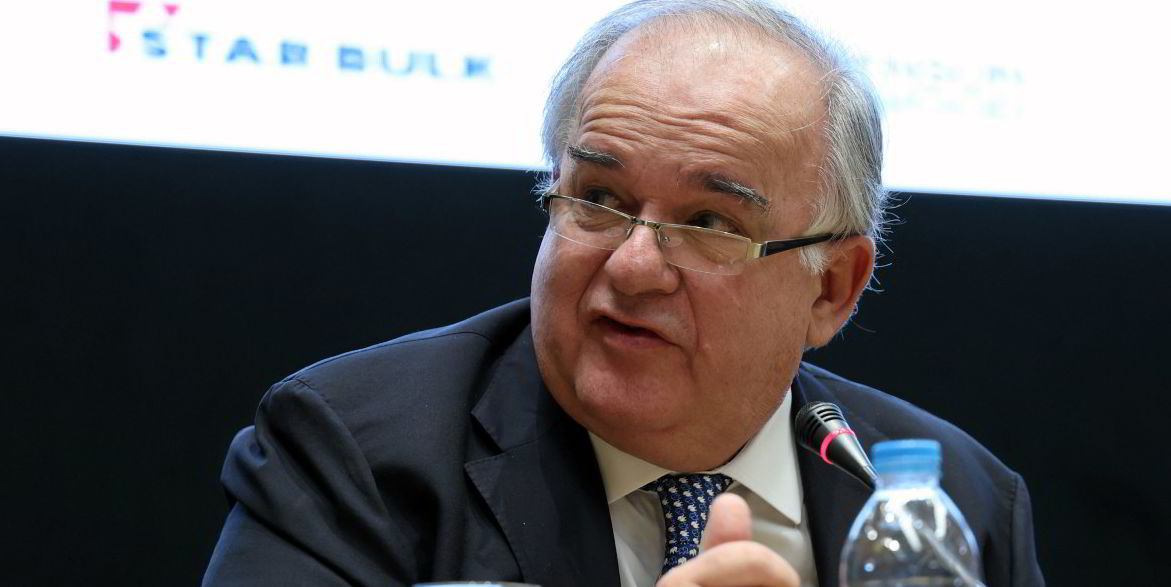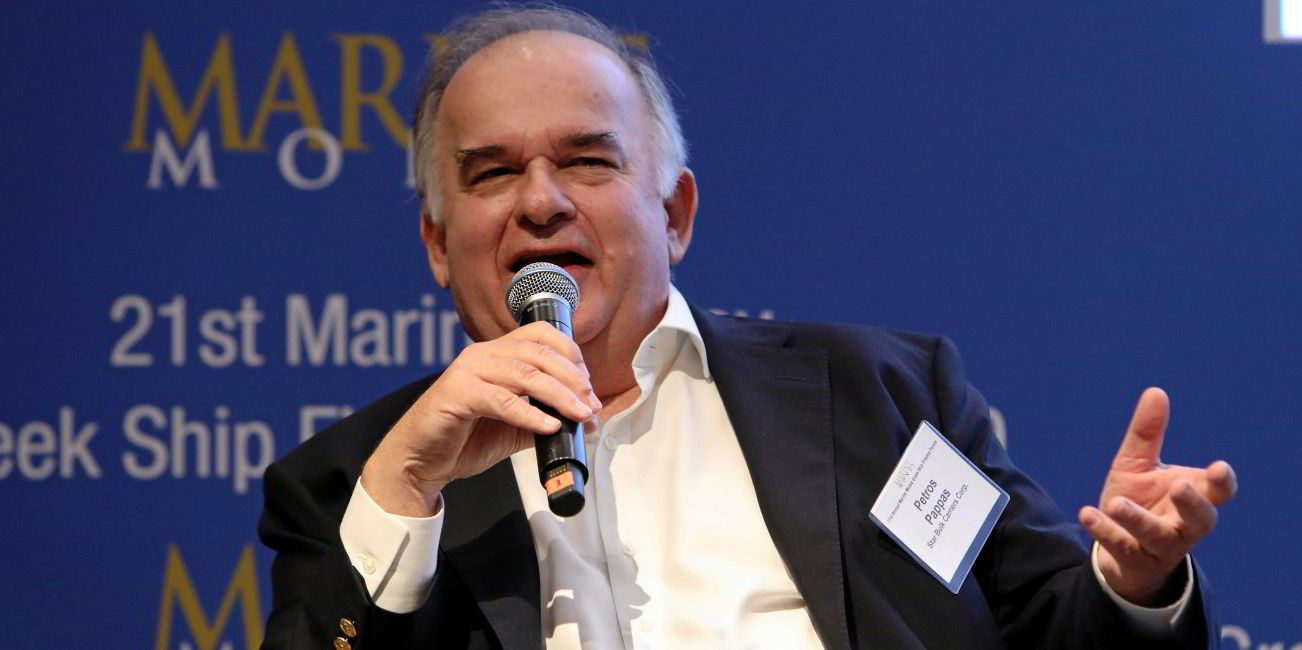Star Bulk Carriers executives say they are sniffing around the market for their next mergers-and-acquisitions deal, less than two months after closing their latest takeover.
The New York-listed company’s $836m, all-stock deal for Connecticut’s Eagle Bulk Shipping in April has left it as the second-biggest shipowner in the supramax and ultramax space, leading Jefferies analyst Omar Nokta to question whether it would like to add larger vessels such as capesizes.
“Well, it happened that this is a supramax fleet,” chief executive Petros Pappas responded in a conference call. “The next merger may be a cape fleet.”
And in case a listener might confuse Pappas’ comment for a throwaway quip, president Hamish Norton doubled down on the talk of the next M&A deal.
Speaking on the conference call to discuss first-quarter earnings, he said closing one transaction has a way of helping the company’s reputation in the market for other deals.
“I don’t underestimate how hard these deals are to get done. We have gotten a lot of them done, but they are always hard to close and they are always low probability,” Norton said, answering a question from Stifel analyst Benjamin Nolan.
“That being said, we’re looking at possible transactions, and we may be able to do one or more. We certainly intend to try to keep growing.”
The hunger for more deals comes as the Greek company is looking at the bulker market with more optimism.
“I think that we are more optimistic than usual also because of the environmental regulations,” Pappas said. “I think they will have an impact, a positive impact on the supply, and so I think this is going to happen … for several years going forward, so that’s a good basis for our optimism, I believe.”
Those mounting regulations are contributing to another factor working in favour of a larger company. It’s just not fun for a small company to have to deal with the regulatory landscape, Norton said.
“For a long time, for centuries, it’s been great fun to operate a small shipping company,” he told analysts. “I think that’s changing and the business is becoming less fun and more sort of demanding of a large corporate organisation.”

Despite the acquisitive stance of Star Bulk’s executives, they made it clear that the company is sticking with a goal to reduce debt, which could be suggestive of shares-based transactions.
Norton said it will continue to pay down loans by $250m per year for the foreseeable future, or at least until it gets to net zero debt.
And those mounting environmental regulations are part of the equation.
“We want to set the company up to be able to get into the era of decarbonisation and we think you need a strong company with a strong balance sheet to do that well,” he said.
It is not clear what is going to happen in shipping’s decarbonisation future, he added —“and if you don’t know what’s going to happen, that sounds like a really good reason to have a strong balance sheet”.
The company is spending cash on energy-saving devices, with four vessels retrofitted and a further 19 planned by the end of this year.
Meanwhile, Pappas said the enlarged fleet of supramaxes and ultramaxes creates an opportunity to sell older vessels, addressing the imbalance between smaller and larger ships.
“You may see us sell some of our less efficient and older vessels, and that may rectify the count until we make our next move,” he said.
Read more
- US shipping investor Oaktree joins football party as new owner of Inter Milan
- Star Bulk profit soars on the back of ‘counter-seasonal’ first quarter
- ADS Maritime cashes in Golden Ocean shares as Navig8 VLCC deal extended
- Football superstar Erling Haaland buys into shipping lender M&M Bank
- Norden tied to second bulker swoop on newcastlemax in quick succession
- ‘I’m doing it for the money’: George Economou opens up on his activist shipping investments





